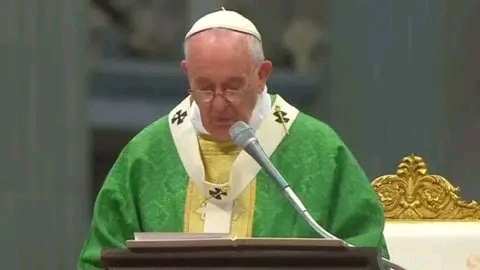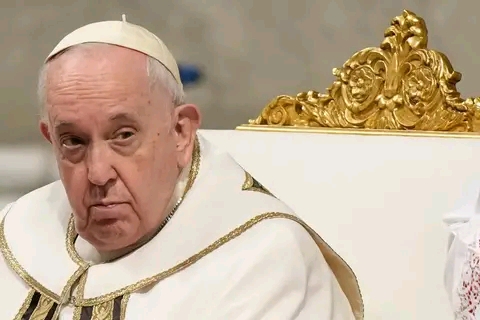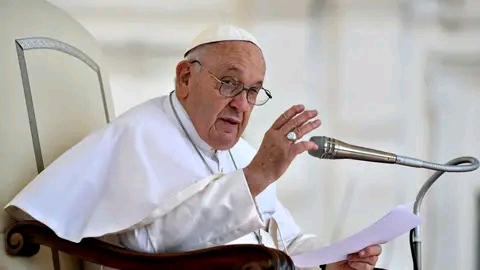Pope Francis Biography: Age, papacy, Catholic, Networth & Picture
Francis born December 17, 1936 in Buenos Aires, Argentina is the bishop of Rome and the leader of the Roman Catholic Church (2013 till now ). He was the first pope from the Western Hemisphere, the first from South America, and the first from the Jesuit order.
Early life and Career
Jorge Mario Bergoglio Francis was the son of Italian immigrants to Argentina. After studying in high school to become a chemical technician, he worked briefly in the food-processing industry but felt called to the church. When he was about 21 years old, he suffered a severe bout of pneumonia that led to the removal of part of his right lung. He entered the Jesuit novitiate in 1958 and then turned to academics, studying humanities in Santiago, Chile, and earning a licentiate (equivalent to a master’s degree) in philosophy in Buenos Aires province. After graduation he taught literature and psychology in high school while pursuing a degree in theology. He was ordained a priest in 1969, took his final vows in the Jesuit order in 1973, and subsequently served as superior (head) of the Jesuit province of Argentina (1973–79), Jorge Mario Bergoglio celebrated his tenth year as Pope Francis in 2023.
In the 1980s Bergoglio served as a seminary teacher and rector and pursued graduate studies in theology in Germany. In 1992 he was appointed an auxiliary bishop of Buenos Aires. He was named archbishop of Buenos Aires (a post he held until his election to the papacy) in 1998 and was consecrated a cardinal in 2001. During the economic crisis in Argentina beginning in the late 1990s, which culminated in 2002 in the rapid devaluation of the country’s currency, Bergoglio acquired a public reputation for humility, living in a simple downtown apartment rather than in the archbishop’s residence and traveling by public transportation or by foot rather than in a chauffeured limousine. He became an outspoken advocate for the poor and an able politician, deftly promoting the church’s position on social matters in meetings with government officials. His theological conservatism, however, set him at odds with the centre-left administrations of Pres. Néstor Kirchner (2003–07) and his wife and successor, Cristina Fernández de Kirchner (2007–15). Bergoglio was a particularly vocal critic of Fernández’s social initiatives, including the legalization of same-sex marriage in 2010. Fernández in turn depicted Bergoglio as a right-wing extremist and a supporter of the Videla dictatorship.
Pope Francis Papacy
In February 2013 Pope Benedict XVI resigned, citing old age and health concerns. A conclave was convened in early March, spurring hopes that Benedict’s replacement could be elected and installed before the impending Easter holiday. Bergoglio was elected on the fifth ballot and chose the name Francis, in honour of St. Francis of Assisi (1181/82–1226), who lived a life of humble service to the poor, and also recalling St. Francis Xavier (1506–52), a founding member of the Jesuits. Although he was the first Pope Francis and was widely referred to as “Francis I,” he declined to use the Roman numeral I to indicate that he was the first to use his papal name. (Traditionally, the numeral I is not added to a pope’s name until after a second pope of the same name has been elected. John Paul I [1978] was the first pope to use the numeral during his reign.)


Francis took charge of a church at a crossroads. In the early 21st century Roman Catholics constituted more than one-sixth of the world’s population, many of them in Latin America and Africa. Yet scandals, particularly the clergy sexual-abuse scandals that first arose in the 1980s and ’90s, had undermined the church’s stature, particularly in the United States and Europe. In his earliest public addresses and in his first public mass, Francis called for spiritual renewal within the church and greater attention to the plight of the poor, and he sternly condemned the forces that diverted the church from its ministry and set it at risk of becoming a “pitiful NGO.” He also reached out to his political opponents, including Fernández, whom he invited to his first official papal address. Yet he incensed some traditionalists by appearing on that occasion in a simple tunic rather than in the more-traditional papal garments. He also took the unprecedented step later in 2013 of appointing a council of eight cardinals to advise him on church policy. His remark in that year that Christ had “redeemed all of us,” even non-Catholics, were broadly interpreted by the media as a message of outreach and goodwill toward atheists and agnostics, though a Vatican spokesman later claimed that Francis had been misinterpreted.
In June 2013 Francis issued the first encyclical of his papacy, Lumen fidei (“The light of faith”). It completed a trilogy of papal encyclicals begun by Benedict XVI on the theological virtues of faith, hope, and love, following Deus caritas est (“God is love”; 2005) and Spe salvi (“Saved by hope”; 2007). However, Francis soon became noted for making statements that conveyed an openness to different perspectives on Catholic doctrine, particularly regarding social issues and sexual ethics. Such statements were subsequently either toned down by the Vatican or seemingly contradicted by Francis himself. For example, Francis surprised both liberals and traditionalists when in a September 2013 interview with an Italian Jesuit magazine he criticized the church for having been “obsessed” with issues such as homosexuality, abortion, and birth control. That remark encouraged speculation both within and outside the church that a major shift in Catholic teaching and practice on such matters as same-sex marriage and contraception would follow. Yet in the following year Francis spoke out against same-sex marriage and defended the “traditional” family. Moreover, he affirmed the church’s categorical opposition to abortion. Although Francis spoke sympathetically of women’s rights and acknowledged women’s historic role in the church, he did not endorse the ordination of women as priests.
The lingering effects of the church’s sexual-abuse scandal constituted another challenge facing Francis’s papacy. During a visit by Dutch bishops in December 2013, Francis prayed for victims of sexual abuse and urged the bishops to reach out to them and their families. In January 2014 the United Nations (UN) Commission on the Rights of the Child recommended that the Vatican adopt procedures for the mandatory reporting of suspected child abusers to law-enforcement authorities but was rebuffed later that year on jurisdictional grounds. Critics observed that the Vatican was slow to punish and defrock priests who were known pedophiles.
On Maundy Thursday Pope Francis washed and kissed the feet of Muslim, Christian, and Hindu refugees, both men and women, during a Maundy Thursday mass with asylum seekers at a shelter in Castelnuovo di Porto, outside Rome, Italy, March 24, 2016.
A central dimension of Francis’s papacy was championing the poor and oppressed, and from the start he promoted a broad ministry that aimed to include not only non-Catholic Christians but even non-Christians. He drew traditionalists’ ire soon after taking office when he washed the feet of two young women, including a Muslim, in a juvenile detention centre during the traditional Maundy Thursday reenactment of Jesus’ washing of the feet of the Twelve Apostles. (Church tradition held that women could not participate in the ceremony because the Apostles were men.) In November 2013 he issued Evangelii Gaudium (“The Joy of the Gospel”), an apostolic exhortation in which he denounced economic inequality and called upon the church to embrace its global diversity. In August 2014 Francis publicly denounced the alleged persecutions of Christians and religious minorities such as the Yazīdīs by the transnational Sunni insurgent group the Islamic State in Iraq and the Levant (ISIL; also called the Islamic State in Iraq and Syria [ISIS]).
In June 2015 Francis issued Laudato si’ (“Praise be to you”), the second encyclical of his papacy. Laudato si’ proclaimed that environmental degradation was “a moral issue” spurred by greed and unchecked capitalism, which caused human beings to lose sight of the relationships that bound them together and to neglect Earth, their “common home.” Promoting the concept of “integral ecology,” Francis connected sinful actions against the natural world with the economic exploitation of impoverished human beings and the denigration of human rights. The document was also noteworthy for its endorsement of the rights of indigenous peoples. However, it polarized many Catholics, especially in the United States.
Three months after issuing Laudato si’, Francis made his first visit to the United States, where he became the first pope to address the U.S. Congress. He once again courted controversy by holding the first canonization mass in the U.S. in honour of Junípero Serra, an 18th-century Spanish missionary whose role in the colonization of the Americas had been criticized by indigenous-rights groups. In New York City, Francis addressed the UN General Assembly and urged the world’s leaders to promote peace. He concluded his tour in Philadelphia, with an address before the World Meeting of Families and an open-air Spanish-language mass. In February 2016 he and Kirill I, patriarch of Moscow and All Russia, held the first-ever meeting between the leaders of the Roman Catholic and Russian Orthodox churches.
In April 2016 Francis issued his second exhortation, Amoris laetitia (“The Joy of Love”), a wide-ranging pronouncement on family issues. In it he urged priests and bishops to take a more welcoming, and less judgmental, attitude toward homosexuals, single parents, and the divorced who remarried but who had not obtained an annulment, indicating in the latter case that such Catholics might be permitted to receive Holy Communion through the guidance of a priest. He did not, however, lift their formal exclusion from the sacrament, and he reaffirmed the church’s rejection of same-sex marriage and of contraception.
In August 2018 Francis revised the catechism of the Catholic church to fully reject the death penalty. Formerly, capital punishment was permitted when it was seen as the only means of defending human lives against an unjust aggressor. The revision states that the death penalty is “inadmissible because it is an attack on the inviolability and dignity of the person.” Long a vocal critic of the death penalty, Francis said that the church would work to abolish capital punishment worldwide.
In February 2019 Francis became the first pope ever to visit the Arabian Peninsula, the birthplace of Islam, in a trip meant to promote religious fraternity and peace. In his three-day visit to Abu Dhabi, in the United Arab Emirates, he attended the Global Conference on Human Fraternity and met with Grand Imam Ahmed al-Tayeb, the head of Cairo’s Al-Azhar Mosque and one of the highest authorities in Sunni Islam. He also celebrated a papal mass attended by an estimated 180,000 people, many of whom were Christian immigrants, in what was the largest display of Christian worship in the country’s history.


